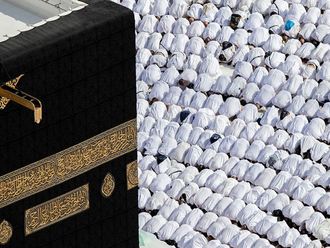Manama: A Bahraini court on Tuesday postponed the trial of 15 women and girls arrested over the weekend on charges of rioting in a shopping complex to September 29.
The women were part of a group of 45 people who were held by the police for their alleged role in a riot in the City Centre Complex in the outskirts of Manama, one day ahead of the parliamentary by-elections to replace 18 lawmakers from Al Wefaq who resigned in late February.
Al Wefaq and other opposition formations had called for the boycott of the elections, saying that the lower chamber should be given more powers.
According to an official statement, the authorities had released 26 of the 45 people arrested and moved towards a swift trial.
The main opposition group said that the women had been ill-treated during their arrest and called for their prompt release.
However, the torture claims were denied as "untrue" and in a statement, the interior ministry assistant undersecretary for legal affairs denied allegations that the women arrested in connection with the incidents were being ill-treated in detention.
"I wish to stress the ministry's keenness to enforce the law, which derives its spirit from Bahrain's customs and traditions to preserve women's dignity," he said. "Those distorting the truth must know that protecting women and preserving their dignity requires them not to incite them to illegal practices," he said.
The Islamic Scholars' Council, the highest Shiite body in Bahrain, and the opposition said that the women were expressing their views when they were arrested and said that they should be allowed home, "especially that local traditions demanded that women be treated with special care and utmost dignity."
However, the justice minister on Monday said that the law in Bahrain did not discriminate between men and women.
"The law in Bahrain does not differentiate between men and women and all people regardless of their gender are required to comply with the law," he told reporters. The minister said that the situation would not have developed if people, both men and women, respected the law.
"We do hope that people comply with the law and respect the feelings of others. We also hope that events are not exploited to sow divisions between people," he said.












